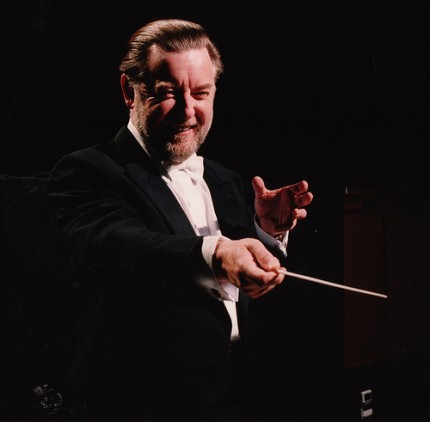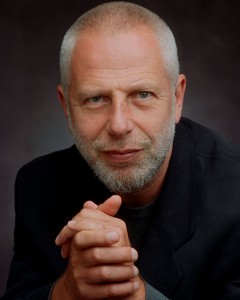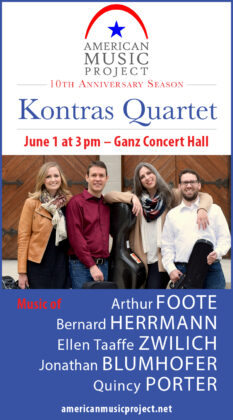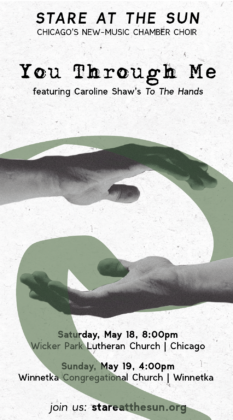Vaughan Williams’ Ninth receives eloquent CSO debut with Davis

Beethoven, Mahler, Bruckner, and Ralph Vaughan Williams.
All of the above composers lived to write nine numbered symphonies. Yet while the first three “Ninths” have long been Chicago Symphony Orchestra mainstays, in the case of Vaughan Williams, his final symphony–like most of his other music–has been ignored at Orchestra Hall.
Happily, that prolonged neglect seems to be changing in the post-Barenboim era. Vaughan Williams’ Fifth Symphony received a luminous Chicago Symphony performance under Peter Oundjian last February, and Thursday night Sir Andrew Davis led the CSO in the belated local premiere of the British composer’s Symphony No. 9.
Though a concert-hall staple in his native England, Vaughan Williams’ music remains a spotty presence at best this side of the pond. It’s hard to account for the continuing neglect of one of the 20th century’s great symphonists. Perhaps the detractors’ view of his music as the old, cow-looking-over-fence English pastoral school still holds sway in some quarters.
But VW’s symphonic oeuvre is much richer and more varied than that, encompassing not just the spiritual English lyricism of Nos. 3 and 5, but the unbridled choral swagger of the Whitman-inspired Sea Symphony (No. 1) and a stark, pessimistic bleakness in the Fourth and Sixth.
Vaughan Williams’ final symphony was completed in 1957, and premiered the following year just four months before his death. Far from reflecting diminished resources, the Ninth is a notably confident and vigorous work. From the ominous opening chords, the drama is presented with characteristic gruff directness balanced by the composer’s lyric sensibility. Even at 85, VW was still exploring new sonorities, as with the three saxophones that present the mellow second theme over divided strings.
Notable too is the use of the flugelhorn in the ensuing Andante, eloquently assayed here by John Hagstrom. In the contrasting section and the rambunctious Scherzo that follows, there is perhaps another of Vaughan Williams’ sardonic and blustery musical self-portraits, spiced nicely by the gamboling saxes.
There is certainly no sense of going quietly into that dark night in this valedictory work. Sir Andrew Davis has long experience in this repertoire, and brought out the defiant vigor as well as the gentleness, balancing the dramatic punch and eloquent solace of the finale with great finesse.
The CSO was at their considerable finest in this performance with notable contributions from flutist Mathieu Dufour, and guest clarinetist Mark Nuccio, assistant principal of the New York Philharmonic.
Vladimir Feltsman was the solo protagonist in the evening’s centerpiece, Beethoven’s Piano Concerto No. 4.

The Russian pianist remains a popular figure in Chicago, but Feltsman wouldn’t be Feltsman if there wasn’t a bit of eccentricity, even in this Germanic keyboard cornerstone. The soloist seemed to take some time to get warmed up Thursday with some stiff passagework and prosaic moments in the opening Allegro when he and Davis didn’t seem quite in synch.
Feltsman brought a freewheeling sense of spontaneity to Beethoven’s extended cadenza, and from then on it was all gain. The pianist’s tender playing quelled the malign string statements in the Andante, and the concluding Rondo was delightful, with Feltsman’s bristling virtuosity adding a nervous edge to the give and take with the orchestra, worthy partners under Davis’s attentive support.
The concert opened with the U.S. premiere of Texan Tenebrae by Mark-Anthony Turnage. This nine-minute CSO co-commission is a fantasy on themes from Turnage’s opera, Anna Nicole, based on the life of the late celebrity bimbo Anna Nicole Smith, which will debut in London next February.
It’s hard to get much sense of the opera from this brief fantasia. Tolling bells and strident brass and high wind chords are repeated, followed by bass drum rolls and a segue into an angular rustic section with some feel of Smith’s down-market Texas origins. More of a teaser for the upcoming opera than a complete piece in its own right, Texan Tenebrae received a commanding performance by Davis and the orchestra, and the CSO’s former composer-in-residence was on hand to share in the enthusiastic applause.
The concert will be repeated 8 p.m. Saturday, 3 p.m. Sunday and 7:30 p.m. Tuesday. cso.org; 312-294-3000.
Posted in Performances



